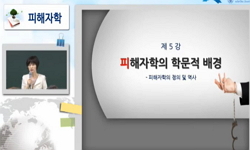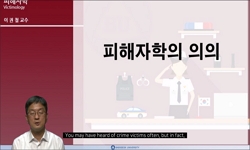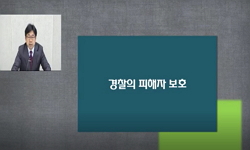안전한 임신중단 보장은 성・재생산 권리의 핵심적인 사항이다. 그러나 낙태죄 비범죄화에도 불구하고 한국에서 임신중단 의료는 정상화되지 못하고 있다. 이 연구는 비범죄화 이전에도 처...
http://chineseinput.net/에서 pinyin(병음)방식으로 중국어를 변환할 수 있습니다.
변환된 중국어를 복사하여 사용하시면 됩니다.
- 中文 을 입력하시려면 zhongwen을 입력하시고 space를누르시면됩니다.
- 北京 을 입력하시려면 beijing을 입력하시고 space를 누르시면 됩니다.

낙태죄 비범죄화 이후: 성폭력 피해자의 임신중단은 가능해졌나? = After Decriminalization: Has Abortion Access been Improved for Sexual Assault Victims?
한글로보기https://www.riss.kr/link?id=A109055674
- 저자
- 발행기관
- 학술지명
- 권호사항
-
발행연도
2024
-
작성언어
Korean
-
주제어
sexual violence ; victim support ; rape-related pregnancy ; abortion ; termination of pregnancy ; 성폭력 ; 피해자 지원 ; 낙태 ; 임신중단 ; 임신중지
-
등재정보
KCI등재
-
자료형태
학술저널
- 발행기관 URL
-
수록면
1-33(33쪽)
- 제공처
-
0
상세조회 -
0
다운로드
부가정보
국문 초록 (Abstract)
안전한 임신중단 보장은 성・재생산 권리의 핵심적인 사항이다. 그러나 낙태죄 비범죄화에도 불구하고 한국에서 임신중단 의료는 정상화되지 못하고 있다. 이 연구는 비범죄화 이전에도 처벌되지 않았을 뿐 아니라 정부의 의료비 지원 대상에 포함되었던 ‘성폭력으로 인한 임신중단’을 중심으로 비범죄화 이후 임신중단 지원 실태와 의료 접근성의 한계를 분석하였다. 성폭력 피해자 지원기관 종사자 및 의료인을 대상으로 한 심층면접을 실시한 결과, 비범죄화로 인한 의료 및 정보 접근성 향상이 나타난 반면 다수의 면접참여자들은 성폭력 피해자 임신중단 의료 지원에서 큰 변화가 없다고 평가하였다. 임신중단이 비범죄화된 데 대한 공식적 정보는 모호하거나 빈약하여, 지원기관과 의료인 모두 ‘아직 임신중단이 합법적이지는 않다’고 생각하는 경우가 많았고, 그로 인해 지원의 정당성을 확보하려면 성폭력으로 인한 임신임을 확인해야 한다는 부담을 갖고 까다로운 절차를 거치거나, 엄격한 요건을 적용하며 아예 지원을 하지 않는 결정을 하기도 했다. 지원기관에서는 성폭력의 신고나 고소, 지목된 가해자와 태아의 DNA 일치, 외부 자문위원의 사례회의 의결, 청소년 피해자의 부모 동의 등을 의료 지원의 선행 요건으로 두는 사례가 있었고 그로 인해 임신중단을 필요로 하는 피해자의 지원이 불가능해지는 사례가 나타났다. 또한 여성가족부의 지원 지침에 따라 무고죄 피소 가능성이나 의료비 환수 등의 안내가 이루어지면서 지원 요청이 위축되고, 성매매로 인한 임신에 대한 의료비 지원 여부가 지침에 명시되지 않아 지원 가능성이 모호한 점도 지적되었다. 임신중단 지원에서 가장 어려운 점은 임신중단 의료를 제공하는 의료인을 찾는 것이었다. 성폭력 피해자임에도 불구하고 의료인의 거부가 빈번하게 발생했고 해바라기센터 수탁 병원이나 성폭력 전담의료기관 중에서도 의료 제공 거부가 나타났으며 임신중단 의료 제공이 가능한 병원 정보가 공식적으로 제공되지 않았다. 의료인 또는 지원기관으로부터 거부당하는 경험은 그 자체로서 피해자에게 임신중단에 대한 낙인과 고통을 강화하였다. 어렵게 찾은 병원에서는 성폭력으로 인한 임신임에도 건강보험을 적용하지 않는 경우가 많고, 건강보험이 적용되지 않은 진료비는 의료비 기준의 부재로 대개 높게 책정되었으며 임신중단은 대개 수술적 방법으로 이루어졌다. 청소년 피해자의 경우 수사와 의료 지원의 모든 절차에서 부모 등 보호자의 동반 및 동의가 요구되고 있어, 보호자에게 알릴 수 없는 피해 청소년들이 지원 요청을 포기하게 되는 문제가 제기되었으며, 발달장애인 피해자의 경우에도 자기결정권 보장의 한계가 나타났다. 의료 지원과 수사 및 피해자 지원 과정에서 2차 피해가 발생하기도 했다. 임신중단 이후에는 재피해 예방을 위한 피임 지원이 제한적으로 적용되고 있었고 임신중단 이후 상담 및 지원 자원이 부족하였다. 관행과 정책의 한계 속에서 피해자 지원기관과 의료인들은 피해자와 연대하며 피해자 지원과 권리 보장을 위한 변화를 만들어가고 있었다.
임신중단 비범죄화 이후 국회에 제출된 낙태죄 개정안 중에는 처벌을 유지하면서 사유에 따라 제한하는 방식이 포함되어 있고 여성가족부에서도 성폭력 중 일부에 대해서만 임신중단 의료비를 지원한다는 지침을 유지하고 있다. 그러나 심층면접...
다국어 초록 (Multilingual Abstract)
Access to safe abortion is a key aspect of sexual and reproductive rights. However, even after the decriminalization of abortion in 2021, abortion care has not been normalized in South Korea. This study analyzes the current state of medical assistance...
Access to safe abortion is a key aspect of sexual and reproductive rights. However, even after the decriminalization of abortion in 2021, abortion care has not been normalized in South Korea. This study analyzes the current state of medical assistance and access to abortion after decriminalization, with a focus on abortion due to sexual violence, keeping in mind that abortion, even before decriminalization, was not punished and it was included in the government’s medical expenses subsidy. In-depth interviews with sexual violence victim support workers and healthcare providers revealed that while decriminalization has improved access to care and information, many interviewees did not see any significant changes in medical support for abortion for sexual violence victims. Both support organizations and providers often felt that “abortion has not been legal yet” and as a result, they felt that they were under pressure to make sure that a pregnancy was the result of sexual violence in order to justify providing assistance to victims. As a result they tend to impose strict requirements on victims for providing medical assistance for them. In some cases, support organizations required a complaint of sexual violence, DNA matching of the perpetrator and the fetus, a case conference decision by an external advisor, or parental consent for adolescent victims as prerequisites for medical assistance, which made it impossible for victims to receive assistance. In addition, the Ministry of Gender Equality and Family’s guidelines discourage supporting organizations to apply for assistance as the guidelines stress the possibility of being accused of false accusation and redeeming of support money. It was also pointed out that the guidelines do not specify whether to support medical expenses for pregnancies resulting from prostitution, so the possibility of support is ambiguous. The most difficult thing with regard to supporting abortion was to find a medical professional who would provide medical care ad abortion to victims. Despite being a victim of sexual violence, women were frequently rejected by healthcare providers and were not officially provided with information on which hospitals could provide abortion care. The experiences of being rejected by medical professionals or support organizations in itself caused worse stigma and pain of abortion for victims. Even at hardly found hospitals, it was often the case that hospitals refuse abortion operation expenses be covered by medical insurance and charged high fees while abortions were mostly performed surgically. Parental consent was required for all processes of investigation and medical assistance, leading adolescent victims to abandon their requests for assistance because they were unable to inform their guardians about their problems. There were also challenges in ensuring the right to self-determination for victims with developmental disabilities. Secondary victimization has been found occurred during the medical assistance, investigation, and victim assistance processes. Post-abortion support for contraception was limited, and counseling and follow-up support were scarce. Since the decriminalization of abortion, amendments to the abortion law were submitted to the National Assembly which maintain the punishment of abortion but limiting them based on respective of reasons. The Ministry of Women and Family Affairs’ policy regarding abortion is that it will only fund abortions in some cases of sexual violence. However, the results of the in-depth interviews show that no support for abortion is possible while criminalizing or stigmatizing it in principle. Given the above-mentioned interview results, this study recommends the measures to ensure the right to abortion for sexual violence victims.
동일학술지(권/호) 다른 논문
-
준거기반내용분석(CBCA)의 변별력 : 성폭력피해주장 성인 진술의 신빙성분석을 중심으로
- 한국피해자학회
- 김경옥
- 2024
- KCI등재
-
성폭력 피해자의 외상후스트레스 영향요인 - 2차피해 특성을 중심으로 -
- 한국피해자학회
- 안도경
- 2024
- KCI등재
-
독일 형사소송법상 피해자개념의 정의(제373b조)에 관한 고찰
- 한국피해자학회
- 이진국
- 2024
- KCI등재




 KCI
KCI 스콜라
스콜라





